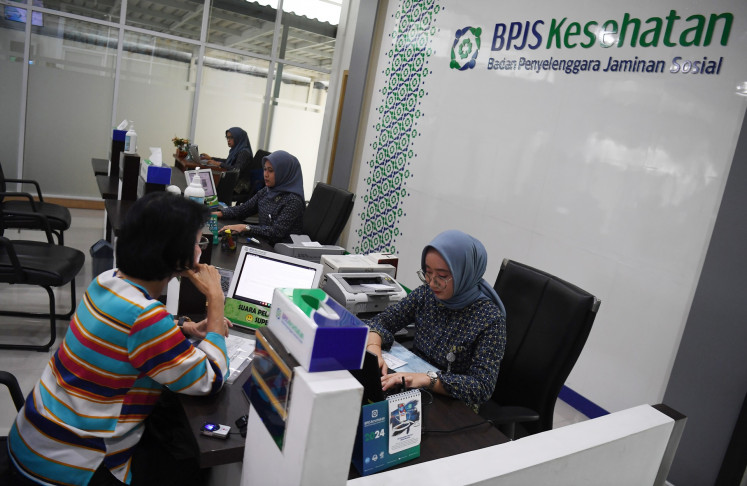Clouds and their silver linings behind Asia
“Potential” is one of the world’s most powerful words
Change Size

“Potential” is one of the world’s most powerful words. It marks the precise point where popular consensus deems that the sprinter who didn’t place first on the podium this year, despite running a good race, could become next year’s winner.
It is loaded with intent, power and an element of unpredictability: Potential links the forces of possibility with the forces of growth and expectation, and nowhere is that concept more applicable right now than in Asia and in the field of technology.
The World Economic Forum’s Global Information Technology Report 2010-11 places Asia at the top of the world in terms of ICT preparedness: according to its Networked Readiness Index (NRI) Singapore, Hong Kong, Japan, Korea, Taiwan, Australia and New Zealand are all peak performers when it comes to preparing their economies for the digital age.
As the largest economy in Southeast Asia in terms of GDP, Indonesia still shows signs of growth and movement in the right direction. The government’s growth forecast for 2011 is upgraded to 6.4 percent, and target 7 percent - 7.7 percent growth in 2014.
The Indonesia government has allocated economic stimulus for the agriculture, infrastructure (transportation, irrigation, clean water) and energy industry. As the economy grows and the Indonesian government invests in development, IT will be a catalyst for economic growth across all of Indonesia’s major industries.
We are at a transformative time in the world – at a time when trade and communication across borders has become faster, easier and cheaper, creating opportunities for entrepreneurs to help advance the economies with which they interact by both building new wealth and creating social and economic opportunity for the communities in which they operate.
At the same time, Asia is riding a wave of invention that is improving services, personal communication and speeding up the process of ideas and knowledge exchange.
It is also turning the region into the world’s largest ICT exporter. The United Nations Conference on Trade and Development (UNCTAD) earlier this year painted a picture of robust growth in Asia’s ICT exports with their increase in share up in 2009 on the previous year.
Indonesia’s key priority will remains attracting foreign direct investment and ICT will play a key role in Indonesia’s economic development. Technology has been a significant contributor to all of these advances and a new paradigm and what many consider to be “IT’s next big thing”, Cloud Computing, promises to deliver the next wave of innovation, with increases in computing power at a lower cost.
Cloud computing promises much: A new study from Springboard Research reveals that cloud computing is poised for very strong growth in Indonesia over the next 12-18 months. 50 percent of Indonesia orgs are currently using or actively planning cloud initiatives — rising to 68 percent among large organizations. Of these respondents, almost half view cloud as a top priority and have significant funding in place — one of the highest rates in the region.
From an economic perspective, Cloud Computing not only enables a shift from capital expenditure to operational expense, but also, the scalable and multi-tenant characteristics of Cloud Computing enable a significant reduction in cost since resources are shared among customers in the datacenter and customers can use only what they need, with real-time adjustments based on real-time demand.
On the social front, the power of Cloud Computing to enable data sharing provides a platform foundation that places an emphasis on transparency, a concept that by definition promotes inclusion, entrepreneurship and democracy.
While I wouldn’t say technology is a magic bullet that will automatically improve a country’s productivity and competitiveness, there are a few key areas where its solutions can help make a noticeable difference – primarily in education, public safety scenarios and transparency.
The signs are that Asia’s governments understand the need to adapt their policy settings to encourage ICT development and embrace new technologies. Workforce development programs reaching schools and communities in Indonesia has been run by Microsoft through Community Technology Centers (CTCs), having contributed more than US$5 million since 2004 – covering 120 CTCs in 20 provinces to reach out to farmers and migrant workers. So far we have reached more than 2.3 million farmers and more than 41,000 migrant workers.
It recognizes also ICTs role as an essential enabler of growth and competitiveness that opens up enormous opportunities for advances in services and opportunity, but it requires a responsible and methodical strategy for efficient and effective implementation.
To realize this potential, new technologies must be part of a mix of productive changes and supporting capabilities. Resources must be matched with resourcefulness combined with initiatives by local leaders, educators and entrepreneurs to achieve individual and institutional objectives.
With a more holistic approach to ICT strategy, the countries that make up the Asia Pacific region have the capability to build a globally competitive economy that is a beacon for the region and the world.
By focusing on the unique assets that helps differentiate an economy, a country can align around its core strengths and determine optimal strategies for improving basic needs in health, safety, education and transparency to deliver greater opportunities for citizens and better innovation for the country.
The writer is corporate vice president, chairman of emerging markets and chief advisor to Microsoft’s chief operating officer (COO) Kevin Turner. The opinions expressed are his own.









